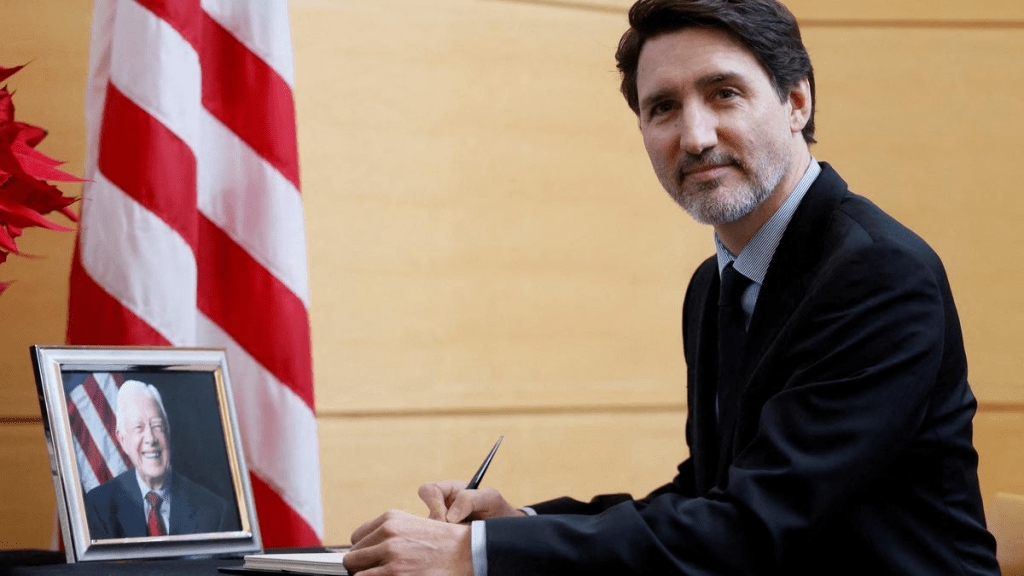Canada Prime Minister Justin Trudeau Resignation: Canadian Prime Minister Justin Trudeau announced on Monday that he will step down as leader of the Liberal Party, ending his nine-year tenure as the country’s head of government. However, he will remain in office until a replacement is selected, which could take months as the party undergoes a competitive leadership process.
Trudeau’s resignation comes under intense pressure from members of his own party, following declining popularity and poor polling predictions for the upcoming election. He acknowledged the mounting difficulties within the Liberal Party and stated that internal battles had made it clear he would not be the best option for Canada’s future. “This country deserves a real choice in the next election,” he said during a news conference. “It has become clear to me that if I’m having to fight internal battles, I cannot be the best option in that election.”
As part of the leadership transition, Parliament will be suspended until March 24, effectively delaying any immediate political actions or motions. This suspension means that Trudeau will remain as prime minister when U.S. President-elect Donald Trump takes office on January 20. With Trump’s threats to impose tariffs on Canada, Trudeau’s political exit comes at a potentially precarious time for the nation.
Trudeau, 53, first assumed office in November 2015, and his leadership was initially celebrated. His ability to secure two re-election victories helped solidify his place as one of Canada’s longest-serving prime ministers. However, his popularity has steadily declined over the past two years, largely due to rising costs of living and an ongoing housing shortage that left many Canadians frustrated.
With the next Canadian election set for late October, polls indicate that the Liberals are on track to suffer a crushing defeat at the hands of the Conservative Party, led by Pierre Poilievre. The Liberal Party’s internal strife, including the resignation of Finance Minister Chrystia Freeland, has fueled discontent, further damaging Trudeau’s political standing. Freeland resigned after a clash over Trudeau’s spending proposals, accusing him of resorting to “political gimmicks.”
Despite Trudeau’s resignation, the delay in parliament’s return has provided some breathing room before any non-confidence motions are introduced, most likely not until May. However, the leadership vacuum left by Trudeau’s exit is expected to impact the Liberals as they prepare for an election that could see their hold on power evaporate.

